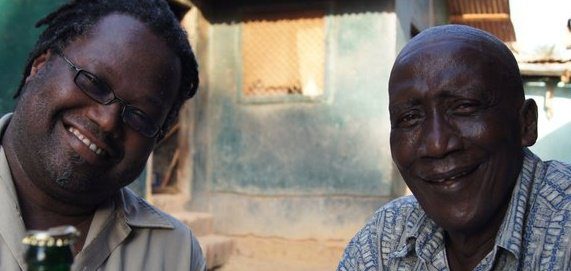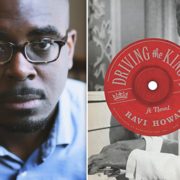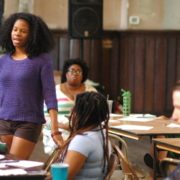Craft, White Gaze and Black Gaze by Andy Johnson (’14, ’16)
At AWP 2016, Andy Johnson delivered the following remarks as part of a Kimbilio panel on black writers in the white world. As a result of this presentation, Andy was offered a book contract!
In 2014, I spoke on a panel called “Crossing (Imagined) Borders: Research, Writing, and the Challenges of the 21st Century,” at the Writing Research Across Borders annual conference in Paris. My paper concerned the ways I’d heard and seen English used while I taught in Liberia – everything from conversations with palm-wine tappers and motorcycle taxi drivers, government radio, rusty signs painted by over-ambitious NGOs (like mine), or corrupt NGOs (also like mine) the soft coding of bribes, folktales, drums, aphorisms, and dances. I’d planned on describing how English has undergone a de-creolization process – after the civil war, the colonized had less affection for the language of the colonizers, and began using indigenous languages as much, if not more than English, resulting in the dissolution of a national Liberian English into 16 separate sub-regional English-es. All of this sounded good and academic and enough to get my university to pay for a trip to Paris.
The day before my presentation, a colleague and I passed a statue near the Latin Quarter. Someone had tagged the bronze with fluorescent green spray paint. My colleague asked why would anyone deface public art? I replied that the answer was right in front of us: the tagger needed to be seen. My colleague said there are ways to be seen and ways to be heard but vandalism wasn’t one of them. I replied that when you’re invisible, even being a criminal means you’re a human being with rights, with laws that apply to you and your body. But when you’re invisible – I said – they can do anything to you.
Of course, I was thinking of Sarah Baartman, a.k.a. the Hottentot Venus. In America, I teach my students about her as an intersection of race, gender, narrative, and invisibility. They react the way most of us reacted when we heard her story: shock, horror, anger, and not a few saying “and this shit still happens today…”
Read the rest of Andy’s article here: Craft, White Gaze and Black Gaze










